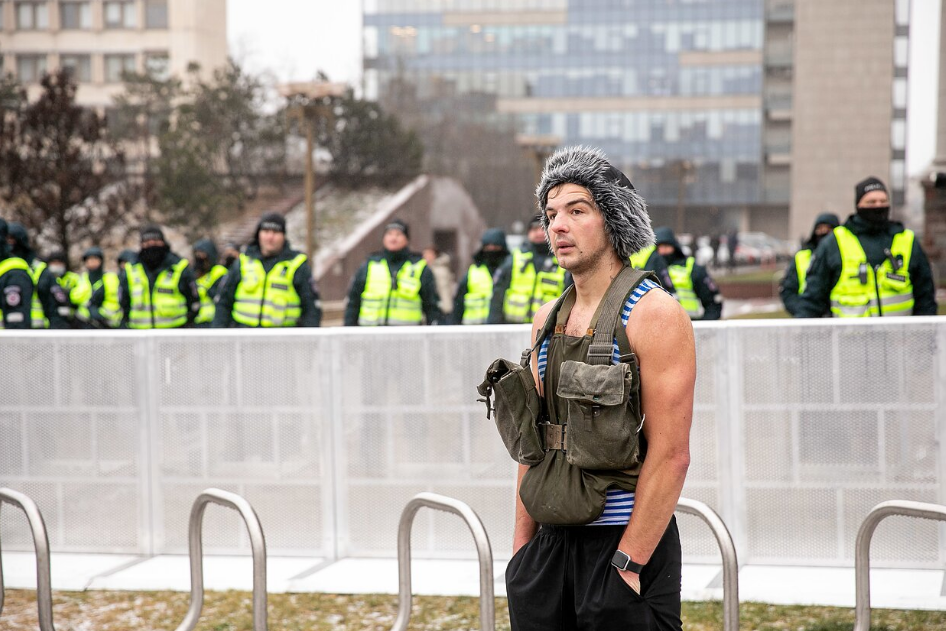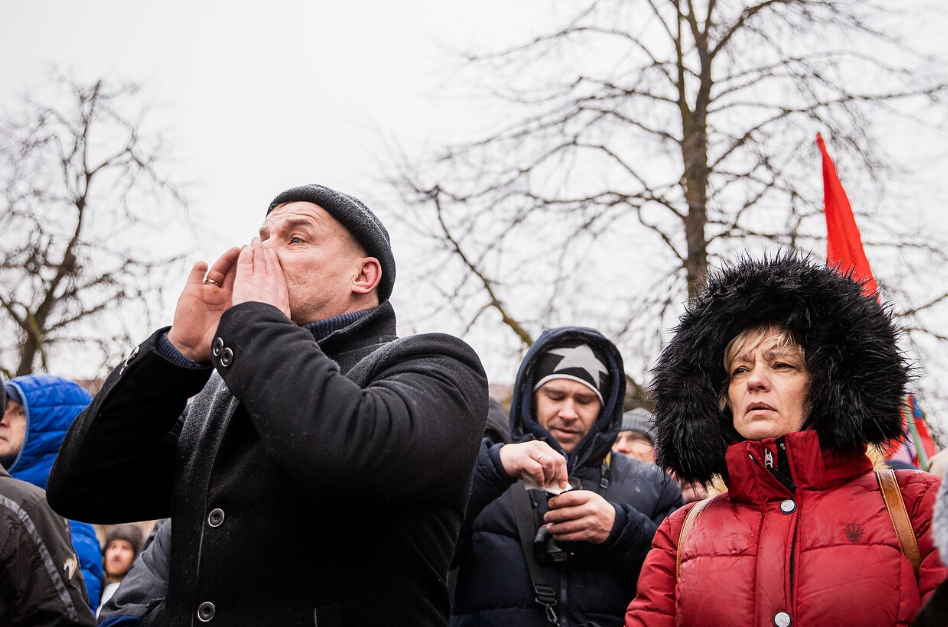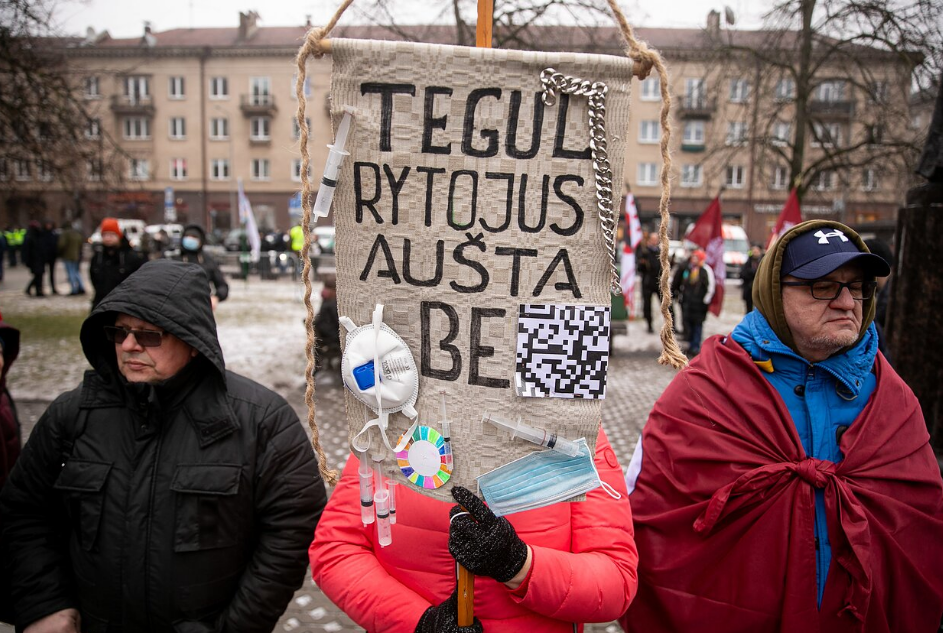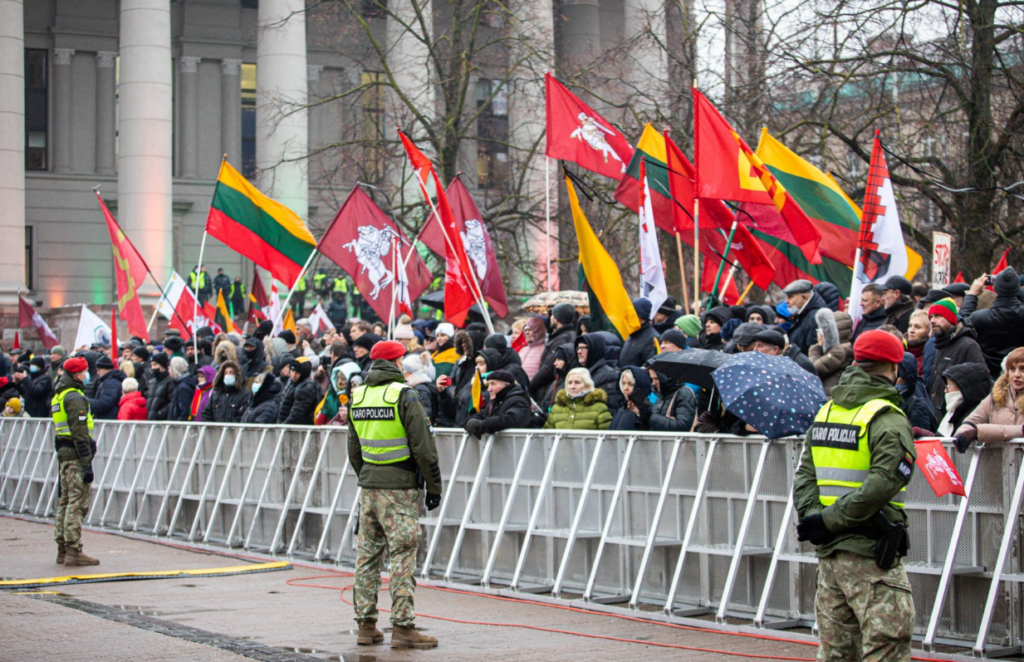![Screenshot 2022-01-14 at 13-35-39 Sausio 13-osios minėjimas lydimas protestuotojų riksmų ir švilpimo Šimonytė tai pavadino [...]](https://tevzib.com/wp-content/uploads/2022/01/Screenshot-2022-01-14-at-13-35-39-Sausio-13-osios-minejimas-lydimas-protestuotoju-riksmu-ir-svilpimo-Simonyte-tai-pavadino-...-1-696x461.png)
Antivaxxers Disrespect Freedom Defenders
On the night of January 13, 1991, Soviet troops attempted to seize power months after Lithuania declared its independence. Fourteen people died during the violence, and hundreds were injured. Various events commemorating the Freedom Defenders took place in Lithuania on Thursday.
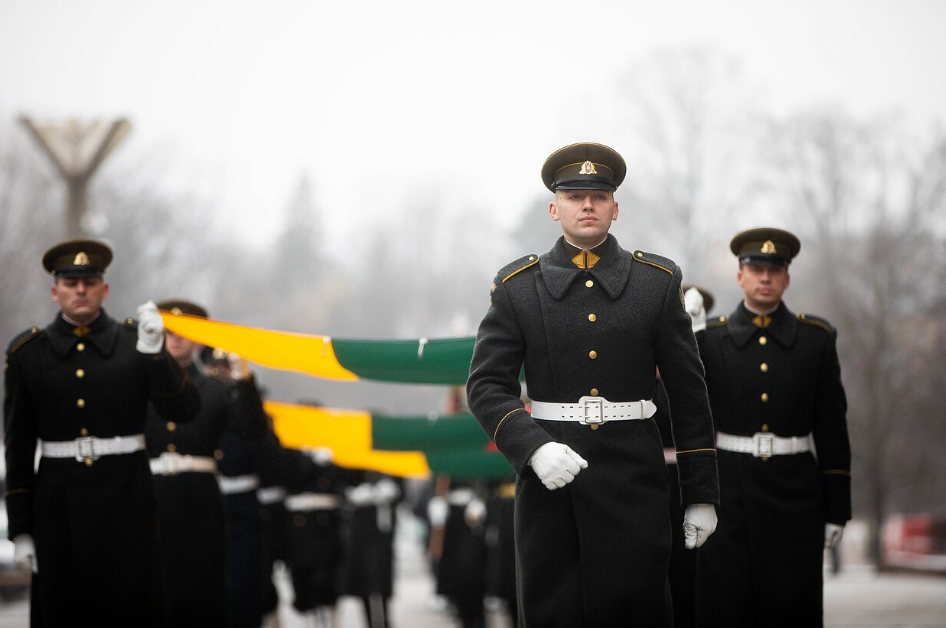
The commemoration began with a civic initiative called Memory Is Alive Because It Bears Witness (Atmintis gyva, nes liudija). As part of it, candles of unity and remembrance were lit in windows in Lithuania. “By lighting candles of unity and remembrance in our windows, we remember those who died that night. We honour those who united to win our freedom back,” said Seimas Speaker Viktorija Čmilytė-Nielsen.
This is the fifteenth time that the International Commission on the Crimes of the Nazi and Soviet Occupation Regimes in Lithuania has organized the event. In the morning, flowers were laid at the sculpture Message (Žinia) dedicated to Lithuania’s independence, next to the Martynas Mažvydas National Library.
At noon, Freedom Defenders’ Day and the award ceremony of the 2021 Freedom Prize took place at Independence Square outside the Seimas buildings, with President Gitanas Nausėda, Prime Minister Ingrida Šimonytė, and Viktorija Čmilytė-Nielsen speaking at the event.
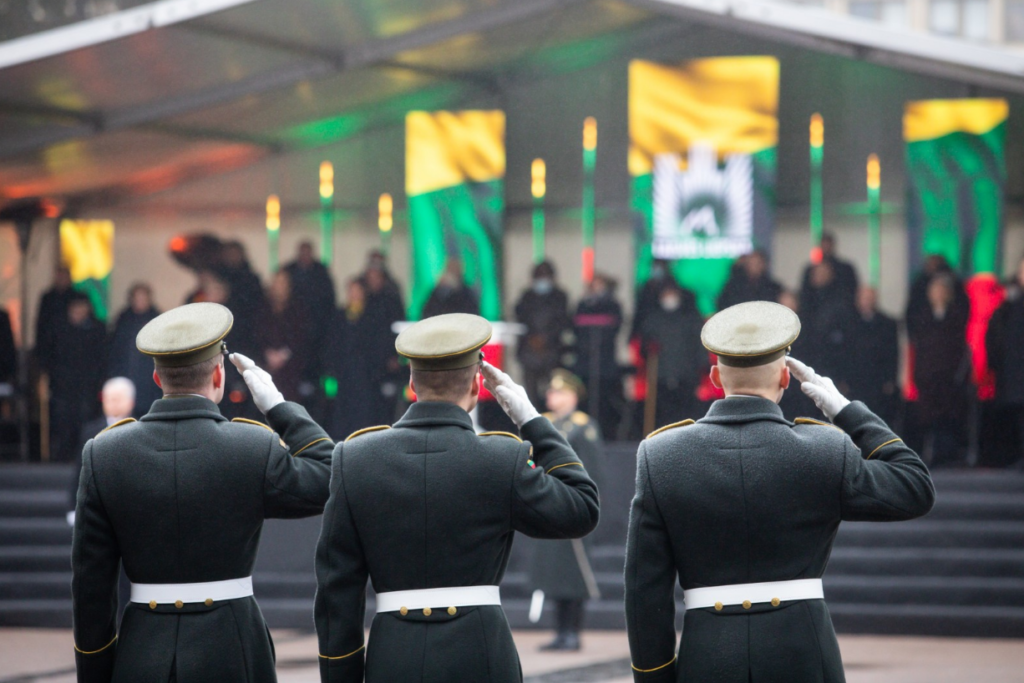
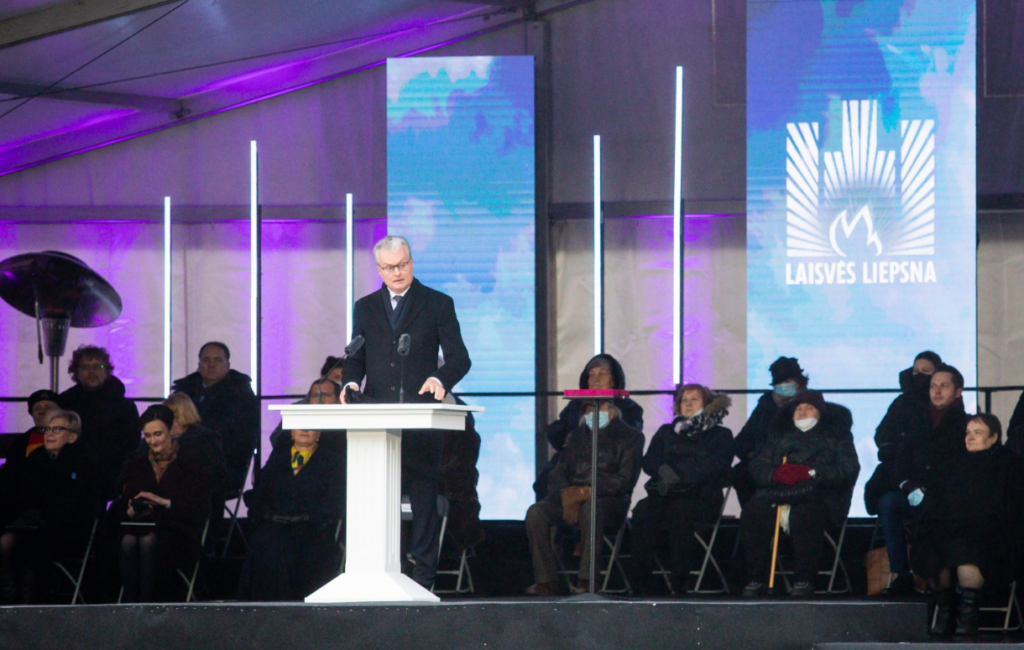
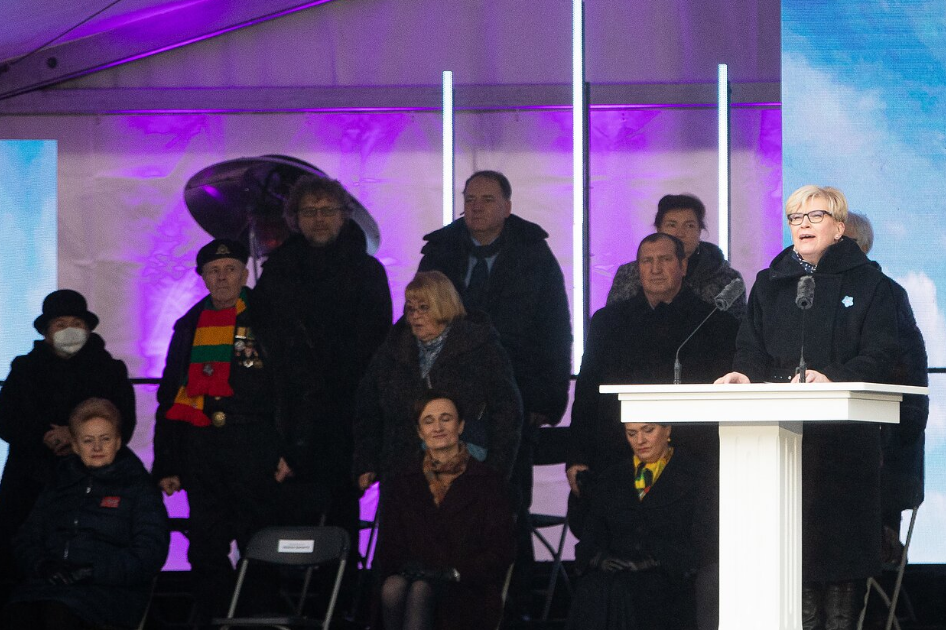
The Freedom Prize was awarded to Jonas Boruta, the former editor-in-chief of the underground publication Chronicle of the Catholic Church in Lithuania (Lietuvos Katalikų Bažnyčios Kronika), as well as the publications’ co-workers Bernadeta Mališkaitė and Elena Šiuliauskaitė. In the afternoon, those who died for Lithuania’s freedom were honoured at the Antakalnis Cemetery in Vilnius.
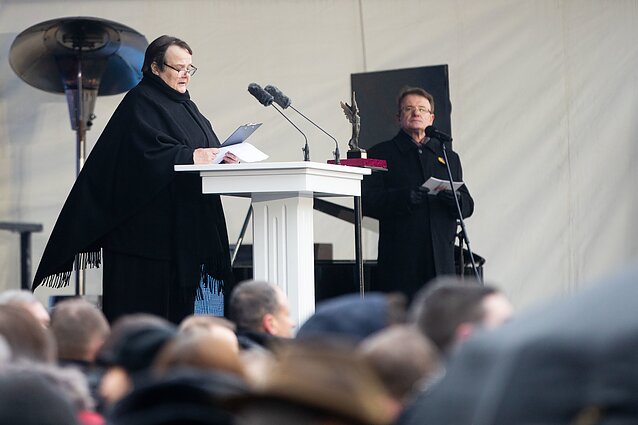
Police in Vilnius deployed more forces at the official events due to protests against the government’s pandemic measures. Protesters were booing and heckling during the official event outside the parliament building at noon. Speeches by Seimas Speaker Viktorija Čmilytė-Nielsen and Prime Minister Ingrida Šimonytė were accompanied by protesters shouting “shame”. They carried placards saying “No to Covid dictatorship” and “The nation is rising”.
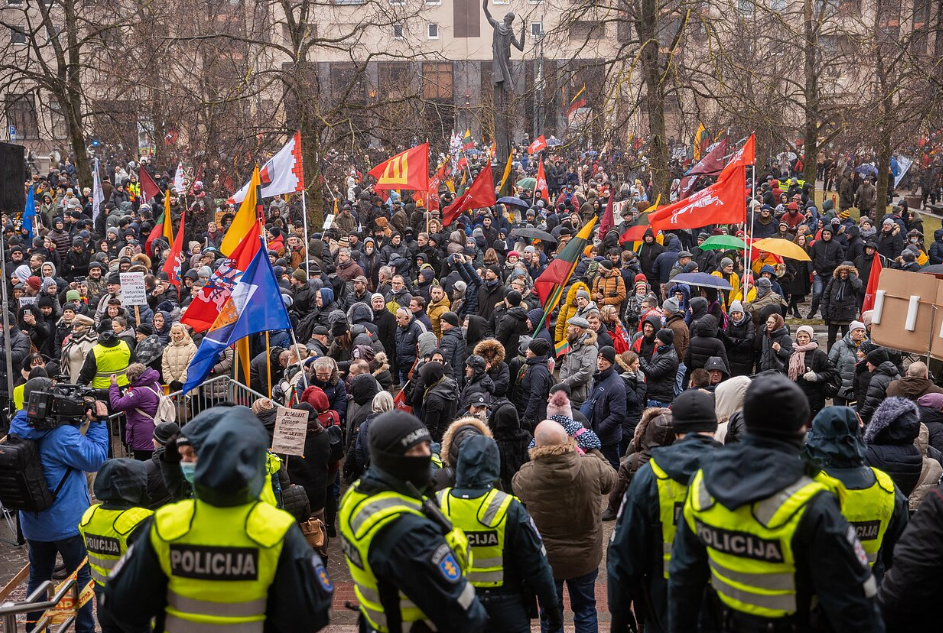
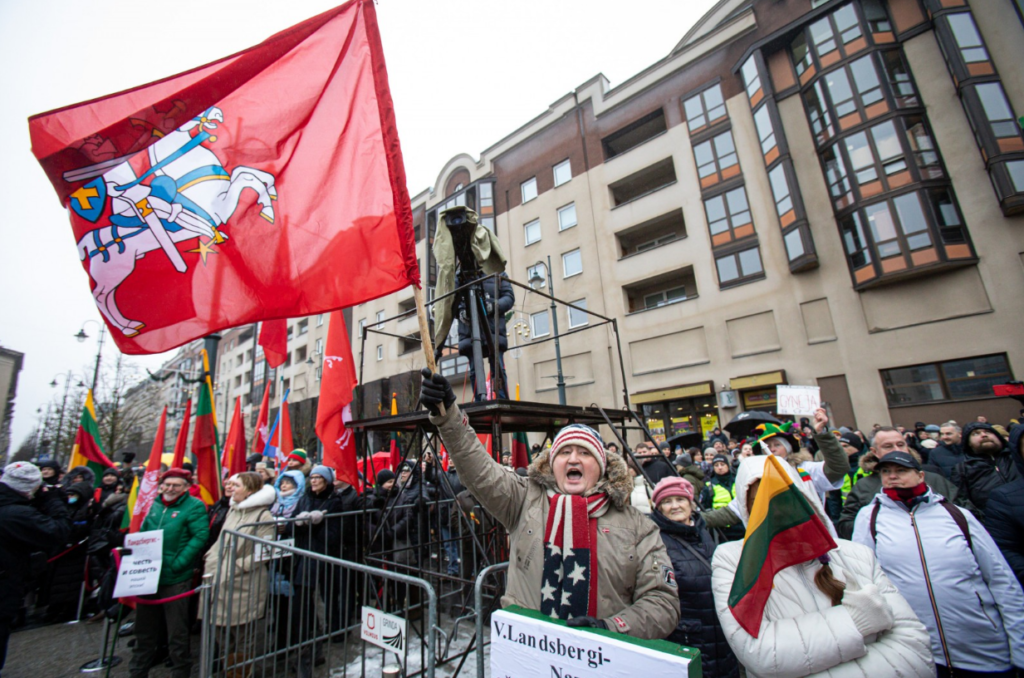
“If you don’t respect the people here, at least show some respect to the memory of those killed [in January 1991],” Gintaras Mikalauskas, the host of the event, told the protesters at one point. President Gitanas Nausėda’s speech was met with less shouting and occasional applause. Vilnius County Policy spokeswoman Julija Samorokovskaja told BNS news that aout 2,500 people had gathered in the square by the parliament buildings, though not all of them were protesters. She later said about 750 stayed after the commemoration event ended.
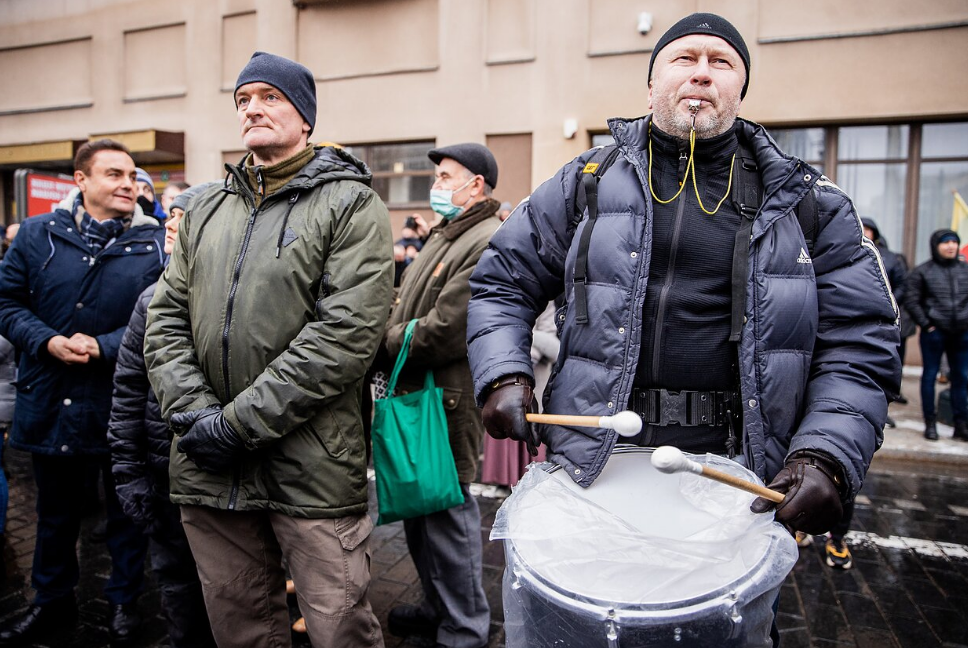
Raimondas Grinevičius, head of the NGO Lithuanian Family Movement, which was behind several anti-vax rallies last year, said the protesters came to Vilnius to express their opposition to “mandatory vaccination of workers” and Covid certificates. They also demand the resignation of the current government, he said.
Earlier this week, activists opposing vaccination, Covid certificates and other pandemic restrictions were urging supporters on social media to come to Vilnius on Thursday.
According to Vilnius authorities, there was no specific application for a rally outside the parliament building. However, the NGO Lithuanian Family Movement has received permits for daily rallies for up to 1,000 people until January 16.
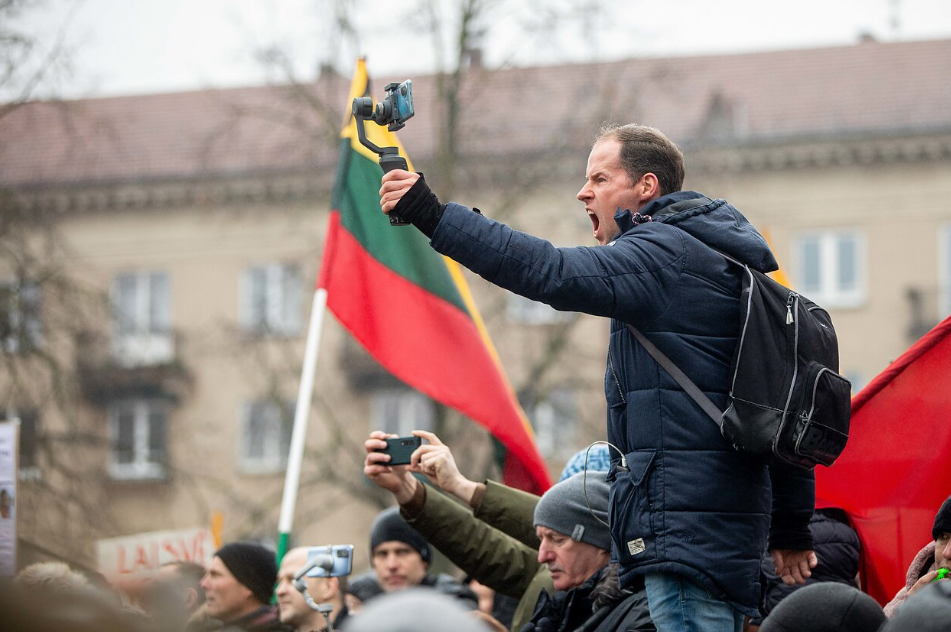
On the eve of the January 13 commemoration events, the police said they were taking additional safety measures, such as fencing off areas around the parliament buildings, checking bus convoys arriving in Vilnius, and conducting random checks of people at the events.
“Those people who died on January 13 also died so that someone could boo the government while it spoke,” Šimonytė told reporters after the event. “But I do not understand why it was necessary to show disrespect to the other speakers, the recipients of the Freedom Prize,” she added. Čmilytė-Nielsen also said she felt ashamed because of the protesters’ behaviour. She apologized to the relatives of the dead, the victims, the defenders of freedom.
People have a right to be disappointed but expressing discontent on such a day was unacceptable, according to Cardinal Sigitas Tamkevičius, the Archbishop Emeritus of Kaunas and a recipient of the Freedom Prize. “I understand that people may be dissatisfied with some of the decisions of the Seimas or the government, but on a day like this, the Freedom Defenders’ Day… I am speechless,” Tamkevičius said.
Vytautas Landsbergis, former Chairman of the Supreme Council of the Republic of Lithuania, described the protesters as fascists, who should not be called Lithuanians. LRT.lt
Photo E. Blaževič/LRT
